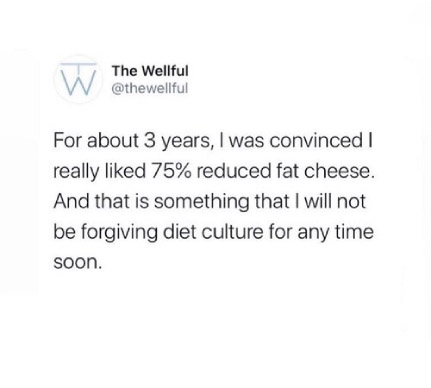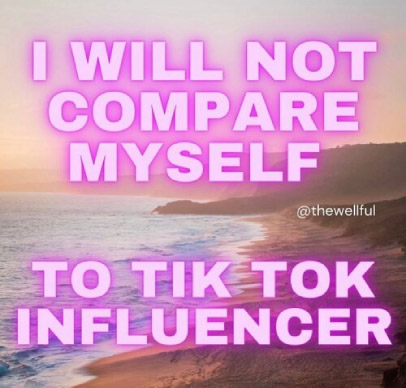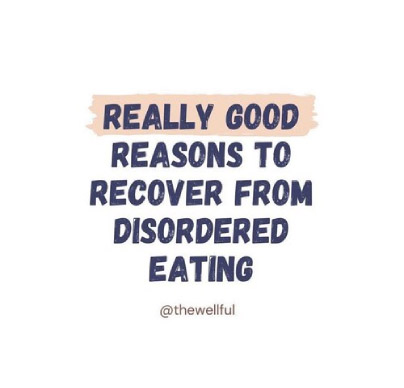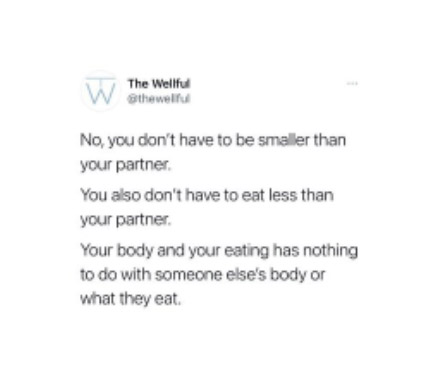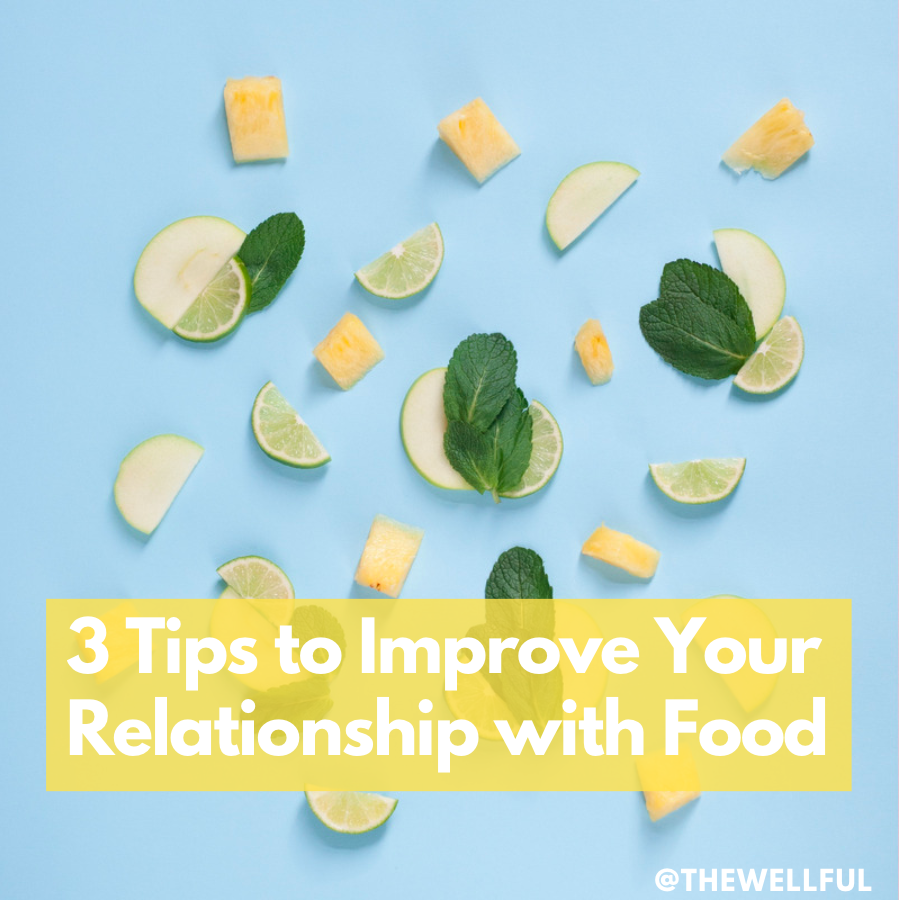
To be honest, I think we all have a ways to go in improving our relationship with food and how we approach nutrition and wellness. So many of us can relate to times of feeling out of control around food or spending more time than we’d like thinking about or obsessing over what’s on (or not on) our plate. There is no shortage of nutrition information telling us what we should or shouldn’t eat, to the point that we have a bit of information overload when it comes to health and wellness knowledge. Instead of adding to the noise of those nutrition specifics, today I’m sharing how we can improve our underlying relationship with food and why it’s so important. Our relationship with food is like the structure of a house – we need it to be stable before we can layer on anything else (like nutrition specifics and other health messages we hear in the news or in media). Here’s why our relationship with food is so important and 3 ways you can work on developing yours.
Intuitive Eating is a non-diet approach to health developed by two registered dietitians, Evelyn Tribole and Elyse Resch. It helps you move away from dieting and feelings of guilt or stress around food, so that you can have a more peaceful and healthy relationship with food and your body. Intuitive Eating focuses on your internal cues based on trust and awareness of what your body needs, like hunger, fullness, satisfaction, food preferences. With dieting, we’re talking about external cues (where someone else is making rules for you to follow) like the number of calories in a food, macros, a specific diet plan, or ‘good’ and ‘bad’ foods. Intuitive Eating helps you to quiet the noise of those external cues and dieting messages so that you can better listen to your internal cues to develop a healthy relationship with food and your body. Intuitive Eating is for everyone – whether you’re always trying a new diet, feeling obsessed around food, stressed out about what you ‘should’ be eating or just want to have a better relationship with food and your body.
What are some few steps she could take to not feel overwhelmed, and to find success?
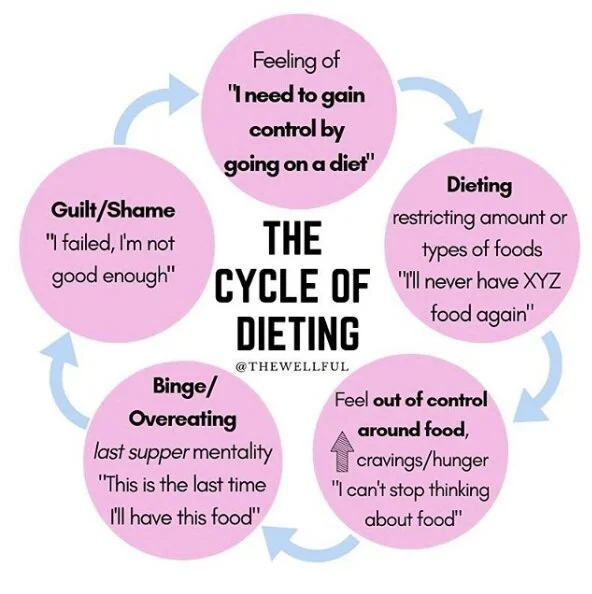
1. Say ‘no’ to dieting.
Summer is around the corner, but that doesn’t mean you need to jump on the diet bandwagon. We have increasing studies to show us that dieting (including ‘lifestyle diets’ and diet trends!) is harmful and dangerous for your health! Dieting is associated with higher rates of disordered eating and preoccupation with food, lower body satisfaction, and weight gain. By moving away from diets and tuning into your internal cues, Intuitive Eating is associated with more positive body image, greater body appreciation, and self esteem – and even better cardio-metabolic markers like lowered triglycerides and higher HDL (“good” cholesterol). If you feel like everyone you know is on a diet, fill your social media feed with people who aren’t promoting diets – search for hashtags like #nondiet #intuitiveeating #allfoodsfit.
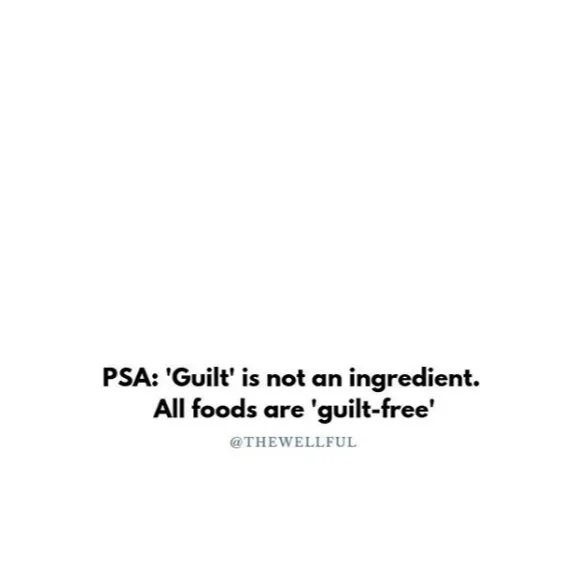
2. Ditch the food labels!
No food is ‘good,’ ‘bad’ or makes you ‘guilty’. When we label foods this way it influences our perception of the foods and our behaviors around them! When you label a food as ‘bad’ you normally restrict it to only let yourself have it on special occasions. This sets you up for feeling out of control around the food when you do have it and then feeling guilt or shame after. When you ditch the labels and restrictions around foods, you can choose the ones you actually want, when you want them and enjoy them too! When foods become something you can have any day, it establishes the trust in your body that this isn’t the last time you’ll be able to eat that food – so it helps get rid of that ‘last supper’ mentality.
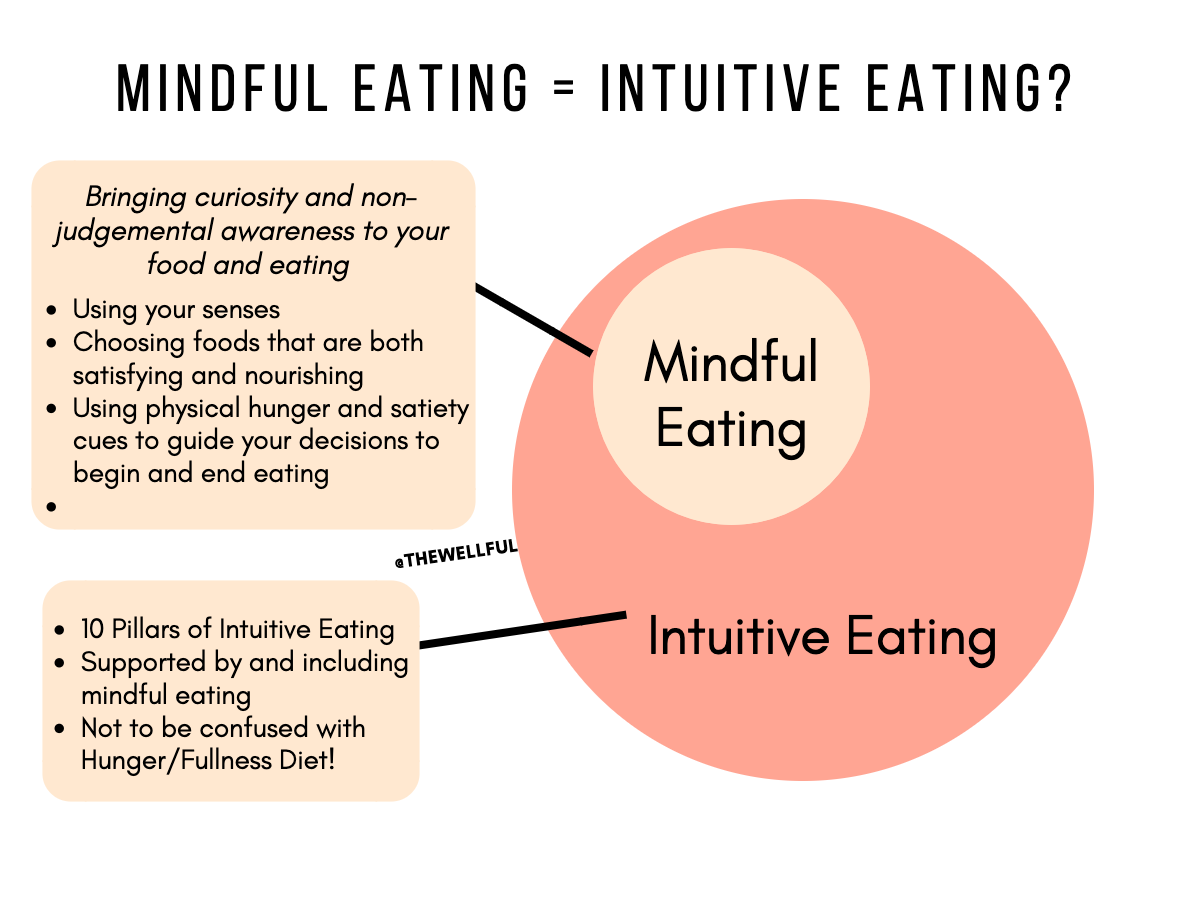
3. Start practicing Mindful Eating
Mindful Eating is the act of bringing mindfulness – non-judgemental awareness and curiosity – to your eating. Mindful Eating helps you notice your hunger and fullness around the meal, what your food actually tastes like and if you like that food! Try taking 3 deep breaths before your meal, noticing the appearance, taste, smell, texture, even sound of your food and make note of your hunger, fullness and satisfaction before, during and after the meal. Don’t know where to start? We have a free guide for that!
Want to start working on improving your relationship with food, without the diets or guilt? I’m accepting 1:1 virtual clients – schedule a FREE discovery call here to get started.





